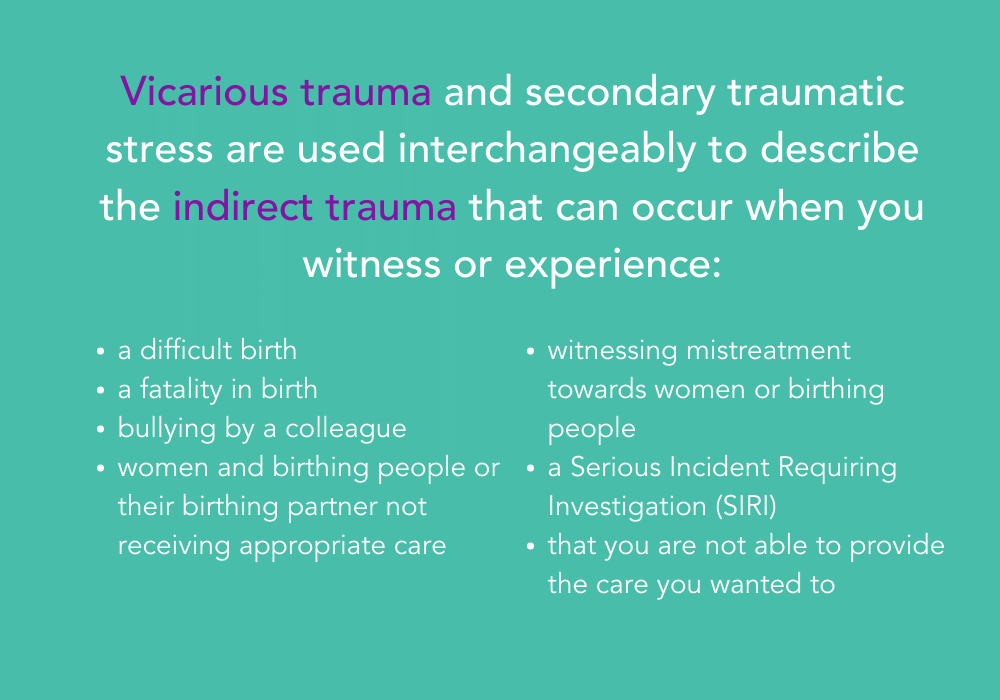What is vicarious trauma?
Let us explain.
You chose to work in maternity care because you care. A lot. Because there’s nothing more beautiful than guiding families through the rite of passage that is parenthood. You knew it’s not always a story of joy, which was even more reason to follow this path. You wanted to be there by their side when it got tough. Because you care.
But it’s becoming too much. You’re angry, sad, numbed. You used to feel passion, but now you’re a pessimist. You’ve become cynical.
Maternity care is an emotionally charged environment. It can be highly rewarding but it comes with huge challenges too.
“I’ve suffered with burnout. I endured years of sleepless nights, often waking with my heart racing at 3am before an on-call shift and having pretty troubling thoughts at times.”






Next
Move to How Can I Find Help? Supporting my team or return to the Professionals Support page.